How to overcome fears and anxiety?
- 2022 July 25
- People
When you want to step forward, change something, do it differently, reveal and express yourself, it is not uncommon for fear arises….
Read More
Molecular genetics cannot yet answer the question of whether it exists a special physicist’s gene is any combination of molecules that determines it – great achievements in physics for the owner. You can still find the fact that I am indirectly testifying that there is such a gene. Physicists more often than children of poets follow you in your footsteps, i.e. i.e. prefers physics, even that part of its direction For the sake of brevity, we will limit ourselves to Nobel Prize winners. In 1915 the prize was shared by father William Henry Bragg and sons William James Lawrence Bragg. AAge Bohr, born in the same year as his father Nils Bohr received the Nobel Prize, he himself received that honor in 1975. One of the first winners of the Nobel Prize — the discoverer of the electron, Joseph John Thomson (Thomson), better known by the nickname Ji Ji, and the 1937 medal laureate George Padiet Thomson, who proved the wave nature of the same electron through experiments, turns out to be a father and sane too.
Who doesn’t know the Laureate Curie family: Pierre, Maria, and their daughter Irena (not counting Irena’s husband Frederik, who took the famous surname of his wife) 7 Becquerel dynasty of physicists: Edmon Becquerel, the president of the French MA, his brother Antoine César, Saint Henri, the discoverer of radioactivity, and Anne Jean — even had a family line of research fluorescence and phosphorescence. The first two were not Nobel laureates only because they died before Nobel established the prize, and the latter apparently the last discovery of the bonus did not occur. On the other hand, Albert Einstein’s one son, Hans, only became a professor of hydraulics, and the other healthy Edgar, had no inclination to physics at all. 1 of the four children of Galileo Galilei, none is mentioned in the history of physics. L. Landau stinus, although he chose his father’s specialty, but according to his classification became only a fourth- or fifth-grade physicist. About 90% of famous physicists’ parents are musicians, businessmen, generals or artists who do not consider physics a serious profession.
So, when looking for physics talent, we cannot limit ourselves to the family of physicists. some statistics may help in these searches. One statistics buff, after looking through several dozen volumes of the encyclopedia, he determined the regularity of the movements: mostly famous people (excluding kings, athletes and inhabitants of the Pictish hemisphere) are born in January, February or March. This also applies to physicists. The most favorable month for them is March, marked by the signs of Pisces and Aries. R. Descartes (Des-cartes) was born in that month, A. Einstein, J. Gamow, O. Hahn, P. S. Laplace, P. Lebedev, G. S. Ohm, V. K. Roentgen, S. Vavilov, J. Zeldovičius, F. Žolio-Curie, etc. t., and three of them — 0. Hanas, P. Lebedev and J. Zeldovich — on March 8. Something for geneticists to think about.

By the way, Lithuanian physicists are on alert for strong phases: September is the most generous for us, when the pioneers of modern experimental and theoretical physics in Lithuania P. Brazdžionas and A. Jucys and a whole group of professors were born. Analyzing biographical data, another regularity emerges: many famous physicists were the first or only children in the family. These are A. Einstein, N. Bor, G. Galileo, Dz. K. Maxwell, I. Kur-ciatovas, O. Fresnel, S. Karno, True, there are exceptions: H. A. Lorentz (Lorentz), L. de Broglie (de Broglie), L. Landau, A. M. Amper, P. Curie — the second, E. Fermi (Fermi), Dž. Daito-nas (Dahon), A. Avogadro (Avogadro) — the third, E. Rutherford (Rutherford) — the fourth, A. Jucys — penultimate, the fourteenth, and B. Franklin (Franklin) — the fifteenth child in the family. Statistics lovers have discovered another important law: the age of the father has an impact on the birth of talent. Father’s, not mother’s. Most physics geniuses are born to elderly parents. I. Newton’s father had a son when he was 37 years old, G. Galileo and E. Fermi – 44 years old, B. Franklin is 51 years old, and R. Wood is even 65 years old. By the way; that regularity is also present in the geniuses of other sciences. All this knowledge can be useful if you want a physics genius or at least a talent to be born in their family. But after his birth, it is not yet time to rejoice – you need to take care of the education of the future scientist. And this is no laughing matter, because physicists usually have a difficult character in childhood (this is another feature that allows them to be distinguished from ordinary children). For example, Nils Bohr and his brother Harold (who later became a famous mathematician) in their childhood, according to their biographer, used to make childish puppets. A. Einstein, in his own words, was famous for the stubbornness of a mule, learned to speak late and did everything in his own way. The uncle used to say to the son with sympathy: “Don’t be upset, Albert, not everyone becomes a professor.” So the defensiveness, the desire to act differently, even if inhumanly, the love of dreaming when told to work, must not testify, on the contrary, to make parents happy – perhaps the future swan of physics is growing here, which only at the beginning resembles the ugly duckling. The least parents can do to help a future scientist is not to force him to be a normal, well-behaved child. But every parent strives for the maximum.

Laura Fermi, the wife of the famous Enrico Fermi, raised her daughter Nelle from the first days as a future physicist. Enrique loved mountain climbing, and six-month-old Nelle climbed mountains in the arms of her nanny up to the foot of Mont Blanc. Enrik was interested in mathematics, and Nele, who had not yet learned to speak well, was already being taught to count. And when her mother asked, “How many legs does a chair have?” she answered, “Three,” Laura Fermi would have a migraine attack. Having had her fill of mathematics as a child, Nelle Fermi later lost interest in it. Maybe she wouldn’t have become a physicist anyway, but Laura Fermi took all the blame and called one chapter of her memoir “Atoms in Our House” “How not to raise children”.

Lev Landau’s parents behaved differently. Although the child was extremely gifted in mathematics, he was educated comprehensively. Music, foreign language, and literature teachers visited the home. Unfortunately, Lev’s handwriting could only be read by himself – to write beautifully, which means wasting time that could be devoted to mathematics. To the question “What did the poet mean?” he would answer in one sentence: “Only he himself could explain that.” Not even his mother’s psychological trick made Lev learn to play the piano: “If you really loved your mother, you would work hard for her.” Lev Landau became a famous physicist, and he disliked music, especially opera, and all kinds of essays. Perhaps Richard Feynman was brought up the most cunningly. His father, who dreamed of being a scientist, but did not become one, put all his hopes in his son. Father prudently put interesting puzzles to Richard, chose toys that develop abstract thinking. Similarly, Sofija Kovalevskaja learned mathematics unconsciously: one room of her parents’ apartment was wallpapered with pages from M. Ostrogradski’s lectures on differential and integral calculus.
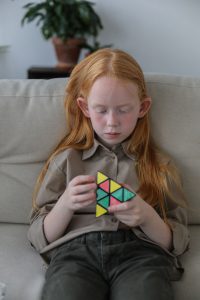
Lena and Boris Nikitinai from Patnaskvio developed a planini method of growing prodigies. It is based on the thesis that human talents must be actively awakened from infancy. To that end, the Nikitins began educating their children (they had seven) spiritually and physically while they were still in diapers. From the age of three months, a crossbar was attached to the baby’s crib. A month later, the baby hung on it for half a minute. Two- and three-year-olds were already lifting objects that weighed as much as they did at four years — was able to walk 20 kilometers a day, in winter he ran barefoot not only in the shed, but also outside. Their minds were also diligently cultivated: at the age of 3-4, Nikitin’s children already knew how to read, at the age of 4 – to write, at the age of 7-9 they surpassed some adults in terms of IQ. For this, an “enhanced educational environment” was used. The children played not simple but psychological games, drew not houses or fields, but house plans and area diagrams, saw not simple pictures, but the periodic table of chemical elements, read interesting logic and only when there was time, fairy tales. This is how the little omniscients grew… Unfortunately, the further they went, the more difficult it was for them to develop their talents. Peers chased and even overtook them, rested from such a marathon. A famous physicist could not be raised in this way. While the inventor parents are experimenting with their children, ordinary parents are spontaneously implementing another pedagogical innovation and handing over all the parenting tips to the screens. And these, in turn, go under the guidance of their grandchildren.

So the latter do what comes to mind. They don’t want to be scientists, because “professor” in children’s language means jerk. Therefore, the consciousness of future physicists begins only in high school. Physics teaching methodology has come up with many sophisticated ways to teach even a monkey the tricks of physics. From memorization to courses whose program is regulated by the students themselves. Recently, problem-based teaching has become fashionable: the student perceives physics as a series of problems, the solution of which he looks for himself (with the teacher prompting), and finally “independently” discovers the law. Some pedagogic authorities pierce the conflict method — presentation of physics knowledge in the form of paradoxes and conclusions. One of the most beautiful discoveries in pedagogy is a personalized teaching system (but try to personalize teaching when there are 30 students in a class).

Physics programs are regularly improved every few years. For a long time, they got harder and harder. However, when their demands requested the capabilities of not only the majority of students, but also some teachers, rollback has started. But regaining the public’s favor is not so easy. At this time, physics is receding and the humanities are gaining ground. After Lithuania regained its independence, one humanitarian representative publicly stated: “We’ve dealt with atheism, now it’s the turn of physics.” The commission, which was preparing a new physics teaching concept, was frightened and promised not only to humanize physics teaching in Lithuania, but also to connect its content “with the nation’s culture, history, customs”. i.e. i.e. to teach physics “on the basis of national culture”. True, physicists later returned to physical values and thus earned the name of stubborn.
Thus, there is no shortage of innovations in physics teaching methodology. The only thing missing is good textbooks and, most importantly, teachers who would teach physics from the heart, not according to instructions. After all, the teaching profession among physicists was, to put it mildly, unpopular for a long time. However, there are miracle teachers who demand not only to know, but also to understand. Who are not afraid of tricky questions, but provoke them themselves. Which send the future scientist not only “twice two” type tasks, but also small problems (that students are able to formulate and solve even scientific problems is shown by their invented experiments in space, some of which were carried out by “Skailebo” astronauts: measuring the Earth’s thermal radiation, testing how a spider weaves a web in weightlessness, etc.) In order for the talent to grow, it must be cultivated by another talent. Look, one school has more Physics Olympiad winners or photons than several other districts. The teacher of that school moves to another region of Lithuania, and after a few years a new school starts to become famous, and the physics fame of the previous one fades (even if it is a school where physics teaching is strengthened). It’s as if children stopped being born in that place, steam physicists. Unfortunately, it is not difficult to count talented physics teachers. It is more difficult to count unremarkable, but honest textbook truths. Apparently, remembering them, A. Einstein wrote: “It seems to me that even a healthy predatory animal would lose its appetite if a rimbu was forced to eat constantly, even when it is not hungry and especially when the food it is forced into is not of its own choosing.” It is not surprising that many students consider physics to be the driest subject, and Newton’s three laws or the law of electromagnetic induction feels a mere physical antipathy, even twenty years after leaving school.
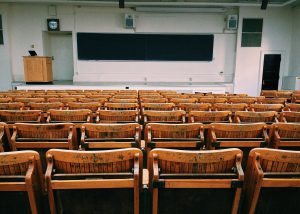
If a child was not interested in physics in high school, let’s not lose hope that he will become a physics star. Parents have to take care of one thing — that the child gets a certificate and goes to a higher school. True, in earlier times even this condition was not necessary. For example, V. K. Roentgen, expelled from the gymnasium for drawing a caricature of a teacher, didn’t have a high school diploma, but that didn’t stop him from becoming a professor. Like Mr. Faraday, who had no formal education. The last Mohican — J. Zeldovich, who was elected academician without having a higher education diploma. But times change, and so do customs. Now even M. Faradjei would not be able to become a professor without a diploma. With this in mind and to reassure their conscience that everything is done for their child’s future, parents are looking for a tutor. This is the most popular way not only to prepare future physicists (if not geniuses, then at least ordinary researchers), but also to improve the material situation of young scientists, therefore, it is worth summarizing the experience of tutors. Self-respecting parents look for a physicist with a degree, or at least a Ph.D. Paid, of course, with a scientific supplement. It would not be appropriate to spare money because a teacher’s authority is proportional to his salary. The tutor’s goal is not to teach the student physics (it is impossible to do that in a few weeks), not to interest him in this science (advised by his parents and uncles, he has already chosen his destiny), not to prepare him for exams (if he is talented, he will enter by himself, if he is stupid, only his parents’ connections can help), but to strengthen him and especially his parents morally. Since today’s young people are not pessimistic, it remains to strengthen the parents. For this purpose, one familiar tutor used to close with the student in his room and played cards. Everyone was satisfied, especially when the son successfully entered the university. Very effective (from a financial point of view) group training of students. After assigning tasks, students can be left alone, then the more capable ones will transfer their experience to the weaker ones (at least teach them how to use information tools). So the young man (jumping over the barrier or using the tunnel effect) gets into a high school.

The university education system established three hundred years ago, has not changed much in its forms (lectures, sessions, (readings, colloquiums). Unless it’s just students who have less freedom and more responsibilities. True, there was a short period of student freedom in the third decade of this century. Then the so-called brigade-laboratory method flourished in higher education institutions. Students made their own teaching plans, they chose the lecturers themselves and sometimes came up with such courses that the teachers had not even heard of. There was no need to take exams. Professors used to get to know students through consultations. Then one student would submit questions to the teacher on behalf of the entire brigade. Student teachers did not ask questions. If the teacher was young, the consultation often turned into a real exam for him. Unfortunately, this golden era of students ended with the complete victory of the teachers and the restoration of strict order. The professor again became superior to the student, although the latter was often head over heels due to acceleration taller than a professor. Only during the physicist’s day do the teachers admit: “And the student should be considered a person, not a material point”, “Provocative questions cannot be asked”. And here are the principles that the teachers follow during the exams, which the students assigned to the category of “axes”: ”
1. Immediately show the student what he is worth.
2. Give the most difficult questions first. If the first one is quite difficult, the student will be so nervous that he will not be able to answer the others, even if they are quite easy.
3. When addressing the student, be restrained and dry… It is effective to address the other examiners from time to time with mocking remarks to the student’s address as if he is not even in the audience.
4. When the student starts to sink, yawn and move on to the next question.
5. Periodically ask the student Questions like this: “Didn’t you learn that in elementary school?”
6. Every few minutes, check with the student if he is nervous.
7. Wear dark glasses. Secrecy is unnerving.”

These principles, as very important. If the exams work harder for the student, they are combined into sessions. It is estimated that the working day of a diligent student not only for a session, but also for a semester exceeds medical norms. And if the student completed all the teacher’s assignments, read all the recommended literature, conscientiously prepared for all seminars and colloquiums, it would be small for him and 24 hours a day. Thus, a dilemma arises for the student: perish or adapt. It is decided in the first year. Some student physicists give up (choose another, easier, specialty), some adapt. This means that the student learns to distinguish what is necessary and unavoidable and what is avoided, what the teacher wants and what is required. An adapted student is able to prepare for the exam in two days and two nights, and then forget it in an instant most of the proof and formulas to make room for another portion of information. How nice it would be if those millions of bits were swallowed in the head during lectures, but unfortunately, some of the teachers, seems to be trying to put as many students as possible to sleep. Academician Piotras Kapica suggested to help correct this as follows: “It would be possible to use modern technology, let’s say, to create a movie showing as a lecturer, the most famous scientist in the field (or even a group of scientists) teaches physics, chemistry or mathematics to students.
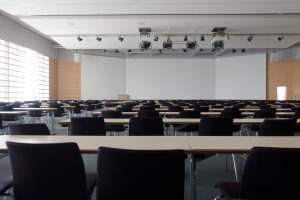
Perhaps the high school administration would welcome it such an initiative would reduce the number of positions, and there would be no need to look for a teacher. Even some students would be satisfied, because it would be more comfortable to sleep in dark cinema halls than in light ones. Imagine that instead of a professor, there are only film projectors in the institute, and only students and film mechanics are walking around. It would be an extremely dull and dark institution that you wouldn’t consider your Alma Mater. But that’s not what matters. They say, sooner or later, students would adapt to it. Teachers would experience this change much worse. Because another function of a higher education institution is completely forgotten – to teach not only students, but also professors and teachers… Often, those thoughtful questions that students ask after a lecture are extremely thought provoking and force us to look at a phenomenon that we are used to seeing from a standard point of view in a new way.”
Mr. Kapica bases his conclusions on facts. E. Schrödinger (Schrbdin-ger) derived the main equation of quantum mechanics during a lecture, explaining de Broglie’s hypothesis about the wave nature of the electron. The idea of non-Euclidean geometry came to N. Lobachevskii’s mind while trying to explain the fifth Euclid’s postulate. The theorem, which we now call Stokes’ theorem, was proved by J. Stokes’ students solving the problem he gave. By the way, he liked to give students tasks, which he did not know how to solve himself, because he wanted to make sure that the student understands that the problem cannot be solved. He gave one such problem about the speed distribution of gas molecules during the exam for student J. K. Maxwell. To Stokes’ surprise, Maxwell solved it — this is how Maxwell’s famous formula for the distribution of velocities was obtained. Unfortunately, these days, teachers are stingy with similar assignments for students. “Black” calculation or measurement is offered even for course and diploma theses. Or maybe the teachers themselves don’t know interesting problems? When, in fact, with a teaching workload of eight hundred hours a year, do you have to dig up science problems? Meanwhile, the staff of research institutes have a problem, but they don’t have lectures. It seems that the way out is obvious, especially since higher education institutions themselves determine the pedagogical load. But the senate does not rush it – then you will neither complain nor make excuses. If a student has managed to catch a good scientific guide, then, even without the talents of a gypsy, it can be said that that the young man has a bright future ahead of him. Let him just hold on to the guide, and he will stretch the student not only to a research position, but also to modern physics. According to the proverb: “Tell me who your scientific supervisor is, and I’ll tell you who you are.” Once you get into a problematic laboratory or institute, it’s not time to say goodbye to textbooks and exams. Because a young specialist is not yet a scientist. It is only a candidate for scientists. And who is a scientist? In the past, the word was pronounced with respect in scientific circles — when it comes to classics or at least PhDs (and that’s some). The creators of the Law on Science and Studies of Lithuania established that “a scientist is a person who does scientific work and has a scientific degree or a pedagogical title”. The creative union of scientists lowered the barrier even lower: a single scientific article written even with a group of friends is enough for its member.
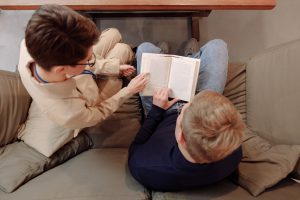
One of its managers was surprised: “For some reason, scientists do not want to join the MNS union. After all, writers are rushing to join the writers’ union”. Apparently, if everyone were to be accepted into the writers’ union, who printed a humoresque in a newspaper, not everyone would rush there either. Despite all attempts at democratization, a degree in modern science still holds about as much magical meaning as as a title of nobility in the Middle Ages. As long as you don’t have a degree, you don’t have your problem, your results, or your opinion. It is not surprising that theses are defended even by those with scientific interests — tenth importance. “Twenty minutes of shame, but then twenty years of a comfortable life.” For a long time there were candidates of sciences and doctors in Lithuania, while in many Western countries — only doctors. After independence, there was a heated debate: how many Science degrees do we need? Many doctors were in favor of two, and many candidates were in favor of one. Doctors won, of course. And in order for the candidates not to be disadvantaged, they had to be promoted to doctors, while the old doctors were promoted to habilitate doctors. According to the law of negation of negation, efforts are made to ensure that the doctoral program does not resemble the former post-graduate studies in any way. The most important goal of the aspirant was scientific work, and for the three candidacy exams he prepared in the time he was doing, while studies became the center of the doctoral student’s activity. Only after passing five or more serious exams does he begin his dissertation work, which is running out of time to accelerate. Therefore, it is allowed to defend the doctorate with only two scientific articles, when at least twice as many were requested from the candidate of sciences (unfortunately, not only money but also degrees are depreciated). Instead of a single supervisor, a doctoral student is supervised by a committee of five scientists. Its preparation is so strictly regulated (both habilitated doctors and members from other fields of science, both from other institutions, etc.), so that often there is no more room in the committee for those who could really help the doctoral student. So he is mainly taken care of by the leader, who commits by his authority that a new doctor will be born no later than four years from now.

The supervisor’s duty is to choose a “dissertational” topic where a positive result can be seen through the fog and to ensure that the doctoral student does not rise to utopian heights or delve too deeply into fundamentals. problems. In a non-ideal case, the supervisor tells the Ph.D. student: “Go and find out the properties of quarks in twenty-dimensional space.” And he returns a year later with three notebooks of formulas. Ideally, the supervisor checks the doctoral student’s work every week and assigns him a task for the following week, i.e. i.e. the doctoral student searches, and the supervisor tells him “hot-cold”. And once instead of “Hot”, they say: “dissertation”. If the entire doctoral committee repeats the “dissertation” in chorus, there is only one laugh left – to write and defend it. It is true that during the discussion in your team, your colleagues convincingly prove to you that the work is useless, most of the conclusions are incorrect and absolutely unfounded, but the author is definitely worthy of a Ph.D. Usually, that’s where the trouble ends, as the official defense takes place in your doctoral committee. After all, its members, by negatively evaluating the thesis, would also condemn themselves as useless guardians. Despite all the reforms, the precepts for the dissertation remain the same: “Don’t write a lot. A thick thesis affects opponents like a red flag.
Don’t be short. This indicates either great talent or mental poverty. Opponents will not give you either. Don’t pat yourself on the back for the classics of science. Do not invite young opponents. They try to win for themselves a “place in the sun” and will always be happy to use the opportunity to demonstrate themselves and scold others. It is better to invite prominent and deserving scientific figures, because in old age we all become, if not better, at least lazier. Be polite when defending your work. Don’t shake your head, don’t wave a stick over the heads of the committee members, don’t drink more than one glass of water, don’t cry, don’t hiss”. Writing and defending the habilitation doctor’s dissertation is even more difficult. You have to find the problems yourself, without a scientific guide to lean on in a difficult hour. It seems that such a scientific work can only be done by a rare talent. It actually manages to do that and ordinary mortals who have organizational skills and know how to mobilize doctoral students, assistants and other personnel under their authority to work together. And the applicant himself must expand his erudition at that time. If at any conference or seminar, he would be able to present an irrefutable question to the speaker and find it if necessary in any work Achilles’ heel, i.e. i.e. would become an authority in his field. And everyone said: “Isn’t N habilitated yet, doctor?” When will he defend?” When public opinion is clear, it is not worth delaying long (otherwise you will be recorded in the list of those who did not live up to expectations). It’s time to take a creative vacation and give birth to proof of your highest qualifications.
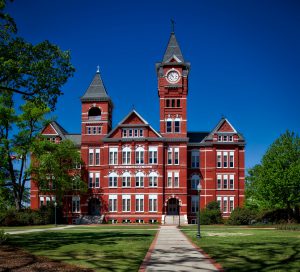
That proof must be recognized by seven other habilitation doctors (apparently the initiator of this idea was inspired by seven wolves slaughtering one sheep). They are practically chosen by the candidate himself. Of course, there are so many habilitated doctors who sympathize with him in Lithuania is not easy. Those who do not approve of the work or do not want to let the applicant into their midst find a polite reason to refuse (after all, the voting in the habilitation committee is not open, so why spoil the relationship with a colleague). Instead, after gathering this committee, and following the presumption of righteousness of its members during the defense, it is possible to prepare the banquet table in advance. After a successful defense, part of the habilitation doctor immediately retire to a well-deserved rest, others enter administrative work, and still others continue their studies. Because if a scientist doesn’t study for a month, only he himself notices if does not study for a year, his co-workers notice, and if he does not study for 5-7 years, even his wife becomes clear that the man has completely lost his qualifications. It is said that the famous professor A. Fortunatovas used to start his first lecture like this: “Dear first-year students, you are greeted by a forty-fourth-year student Aleksejus Fortunatovas”. L. Landau had determined the minimum knowledge necessary for a professional theoretician. Later, on the basis of this minimum, together with J. Lifšits, he wrote the multi-volume “Theoretical Physics”. Over 30 years, forty-three physicists passed that theoretical minimum exam at Landau — doctors of science (now they would be habilitation doctors), candidates (now doctors) and even one student. The theoretical maximum has not been determined. Unless she knew Lev Landau himself.
Join The Discussion